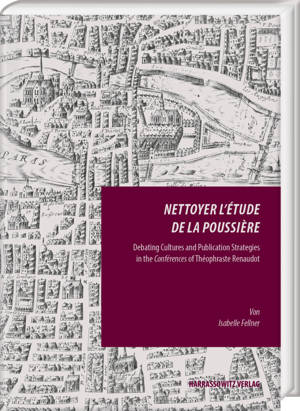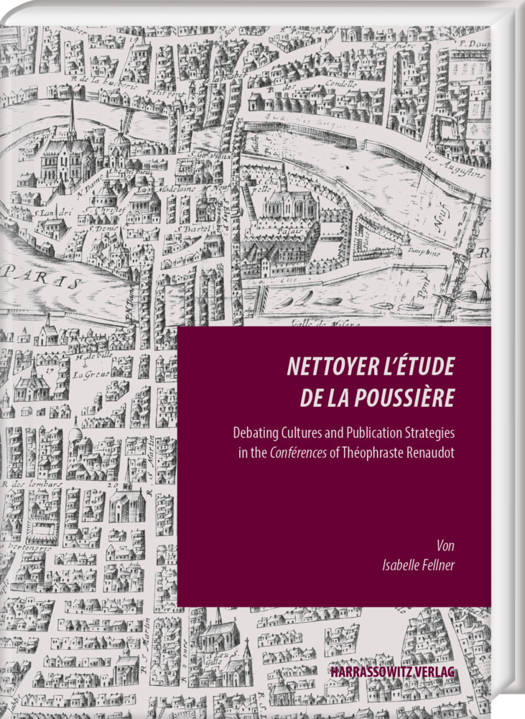
- Afhalen na 1 uur in een winkel met voorraad
- Gratis thuislevering in België vanaf € 30
- Ruim aanbod met 7 miljoen producten
- Afhalen na 1 uur in een winkel met voorraad
- Gratis thuislevering in België vanaf € 30
- Ruim aanbod met 7 miljoen producten
Zoeken
Nettoyer l'Etude de la Poussiere
Debating Cultures and Publication Strategies in the Conferences of Theophraste Renaudot
Isabelle Fellner
€ 159,45
+ 318 punten
Omschrijving
While any conceivable piece of information is only one click away for inhabitants of the 21st century, such was not the lot of our 17th century counterparts. Theophraste Renaudot's establishment of a Bureau d'adresse, a place dedicated to the exchange of knowledge, therefore addressed a dire need, and captured the interest of other European "intelligencers". The Parisian Bureau not only functioned as an entrepot for practical information but also housed the Conferences, Renaudot's academy. The Conferences aimed at no lesser goal than to vulgarize knowledge for as large an audience as possible and to brush off the dust it had supposedly acquired in scholastic university: hence the title of the present study, nettoyer l'etude de la poussiere. This volume analyzes the Conferences and their printed records and connects them to other early modern modes of knowledge negotiation from the perspective of a transdisciplinary history of knowledge. It argues that on an individual level, the various participants of the Conferences did not radically break with dialectical and rhetorical traditions; yet the printed records of their meetings did present knowledge in a new medial form that epitomizes fundamental trends in the contemporary Republic of Letters.
Specificaties
Betrokkenen
- Auteur(s):
- Uitgeverij:
Inhoud
- Aantal bladzijden:
- 280
- Taal:
- Engels
- Reeks:
- Reeksnummer:
- nr. 33
Eigenschappen
- Productcode (EAN):
- 9783447120357
- Verschijningsdatum:
- 20/12/2023
- Uitvoering:
- Hardcover
- Formaat:
- Genaaid
- Afmetingen:
- 178 mm x 27 mm
- Gewicht:
- 439 g

Alleen bij Standaard Boekhandel
+ 318 punten op je klantenkaart van Standaard Boekhandel
Beoordelingen
We publiceren alleen reviews die voldoen aan de voorwaarden voor reviews. Bekijk onze voorwaarden voor reviews.







